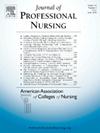Standardizing nurse practitioner clinical education: The Cognitive Preceptorship Model
IF 2.9
3区 医学
Q1 NURSING
引用次数: 0
Abstract
Background
Though preparing autonomous advanced nursing providers who are ready to care for complex clients in a variety of settings after graduation is necessary to achieve clinical competence, NP clinical education activities used to achieve competencies are greatly variable and hard to measure. The quality of students' clinical experiences impacts students' achievement of clinical competence (CC) and achieving CC is important for the NPs to successfully transition to practice after graduation.
Aim
The purpose of this project is to apply the Cognitive Preceptorship Model (CPM) to design, describe, and explain the clinical activities that are NP role-specific, that scaffold from the American Association of Colleges of Nursing (AACN), and National Organization of Nurse Practitioner Faculties (NONPF) competencies and that help NP students achieve competencies.
Method
CPM concepts, AACN and NONPF competencies were cross analyzed. NP role-specific clinical teaching and learning activities were designed, described, and displayed in a table.
Conclusion
AACN and NONPF competencies provide the foundation for competencies-based education, which is necessary to standardize NP students' learning outcomes; however, how these outcomes should be achieved in a clinical learning environment (CLE) should also be standardized. Using role-specific theoretical literature that is well aligned with the role competencies to guide the designing of clinical activities should assist in standardizing NP evidence-based clinical education.
规范护士临床教育:认知指导模式
虽然培养自主的高级护理人员在毕业后准备好在各种环境中照顾复杂的客户是获得临床能力所必需的,但用于获得能力的NP临床教育活动变化很大,难以衡量。学生临床经验的质量影响学生临床能力的实现,而临床能力的实现对于NPs毕业后顺利过渡到实践是重要的。目的本项目的目的是应用认知指导模型(CPM)来设计、描述和解释NP角色特异性的临床活动,这些活动来自美国护理学院协会(AACN)和国家护士执业学院组织(NONPF)的能力框架,并帮助NP学生实现能力。方法对cpm概念、AACN和NONPF能力进行交叉分析。设计、描述和展示NP角色特异性临床教学活动。结论aacn和NONPF能力为能力本位教育提供了基础,是规范NP学生学习成果的必要条件;然而,如何在临床学习环境(CLE)中实现这些结果也应该标准化。使用与角色能力相一致的角色特定理论文献来指导临床活动的设计,应该有助于标准化NP循证临床教育。
本文章由计算机程序翻译,如有差异,请以英文原文为准。
求助全文
约1分钟内获得全文
求助全文
来源期刊
CiteScore
4.80
自引率
8.00%
发文量
153
审稿时长
52 days
期刊介绍:
The Journal will accept articles that focus on baccalaureate and higher degree nursing education, educational research, policy related to education, and education and practice partnerships. Reports of original work, research, reviews, insightful descriptions, and policy papers focusing on baccalaureate and graduate nursing education will be published.

 求助内容:
求助内容: 应助结果提醒方式:
应助结果提醒方式:


